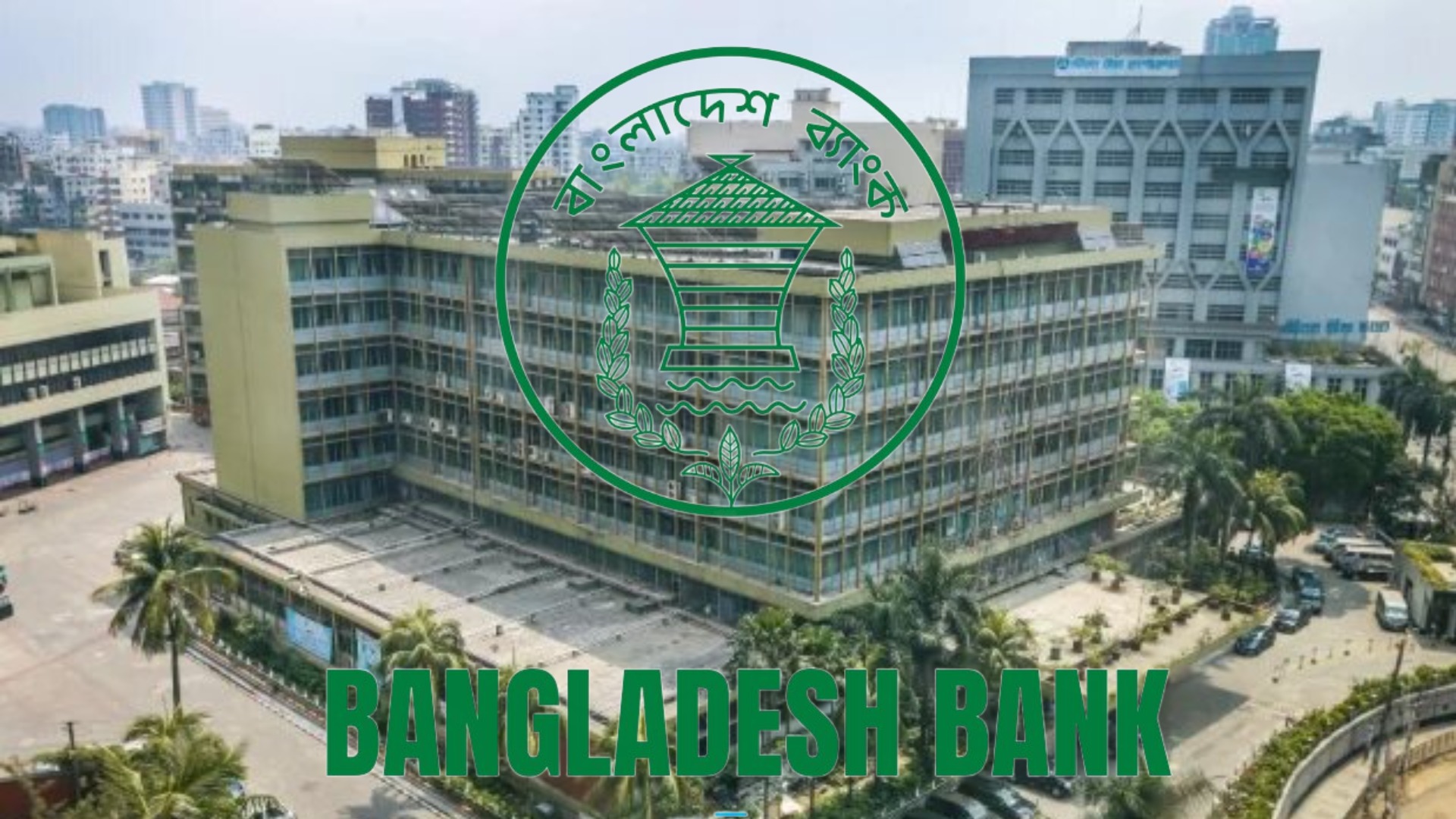
Bangladesh Bank, the central bank of Bangladesh, stands as a cornerstone of the nation’s financial architecture, playing an indispensable role in shaping the economic landscape. Since its establishment in 1971, following Bangladesh’s hard-fought independence, the bank has grown to become a critical institution with far-reaching responsibilities that touch nearly every aspect of the country’s financial system. Its operations are crucial not just for maintaining economic stability but also for fostering sustainable growth and ensuring the smooth functioning of the financial markets.
Historical Context and Evolution
Bangladesh Bank’s creation was necessitated by the emergence of a new sovereign nation in 1971. In the immediate aftermath of independence, the nascent state of Bangladesh faced monumental challenges, including the need to establish a robust financial system that could support economic reconstruction and development. The central bank was tasked with stabilizing the currency, managing inflation, and rebuilding a financial infrastructure that had been severely disrupted during the liberation war.
Over the decades, Bangladesh Bank has undergone significant evolution, adapting to the changing needs of the economy and the financial sector. Initially focused on stabilizing the newly introduced Bangladeshi taka and managing inflation, the bank gradually expanded its role to include a wide range of functions, from regulating the banking sector to managing foreign exchange reserves and implementing monetary policy. This evolution has been marked by several key milestones, including the adoption of modern banking practices, the introduction of digital financial services, and the implementation of comprehensive reforms aimed at strengthening the financial system.
Core Responsibilities and Functions
Monetary Policy and Inflation Control
One of the primary responsibilities of Bangladesh Bank is the formulation and implementation of monetary policy. The bank uses a variety of tools to control the money supply, regulate interest rates, and influence inflation, all of which are crucial for maintaining economic stability. By adjusting key policy rates, such as the repo and reverse repo rates, and conducting open market operations, Bangladesh Bank influences the cost of borrowing and the availability of credit in the economy. These actions are critical for managing inflationary pressures, promoting investment, and supporting overall economic growth.
In recent years, Bangladesh Bank has adopted a more proactive approach to monetary policy, focusing on maintaining price stability while also supporting economic growth. The bank’s monetary policy is designed to strike a balance between controlling inflation and ensuring that sufficient liquidity is available to fuel economic expansion. This delicate balance is achieved through a combination of policy tools, including interest rate adjustments, reserve requirements for banks, and direct interventions in the foreign exchange market.
Banking Sector Regulation and Supervision
As the regulator of the banking sector, Bangladesh Bank is tasked with ensuring the soundness and stability of financial institutions. This involves a wide range of activities, from licensing new banks and financial institutions to conducting regular inspections and audits to ensure compliance with banking laws and regulations. The central bank also sets prudential standards for banks, including capital adequacy requirements, risk management practices, and corporate governance guidelines, all of which are designed to promote financial stability and protect depositors.
In its supervisory role, Bangladesh Bank monitors the health of the banking sector through a combination of on-site inspections and off-site surveillance. The bank uses a risk-based approach to supervision, focusing on the most critical areas of risk, including credit risk, market risk, and operational risk. This approach allows the central bank to identify potential problems early and take corrective action before they pose a threat to the stability of the financial system.
Foreign Exchange Management and Currency Stability
Bangladesh Bank plays a crucial role in managing the country’s foreign exchange reserves and ensuring the stability of the exchange rate. The central bank intervenes in the foreign exchange market to smooth out volatility and prevent sharp fluctuations in the value of the Bangladeshi taka. By maintaining a stable exchange rate, Bangladesh Bank helps to promote investor confidence, attract foreign investment, and support the country’s export-oriented industries.
In addition to managing the exchange rate, Bangladesh Bank is responsible for regulating foreign exchange transactions. This includes overseeing the operations of authorized dealers, ensuring compliance with foreign exchange regulations, and monitoring the flow of capital in and out of the country. The central bank’s foreign exchange management strategy is designed to safeguard the country’s external stability while supporting economic growth and development.
Currency Issuance and Management
Another critical function of Bangladesh Bank is the issuance and management of currency. The central bank is responsible for ensuring that there is an adequate supply of currency notes and coins to meet the needs of the economy. This involves not only the design and production of new currency but also the distribution and replacement of old or damaged notes. Bangladesh Bank also plays a key role in maintaining public confidence in the currency by implementing measures to prevent counterfeiting and ensuring the integrity of the currency system.
In recent years, Bangladesh Bank has introduced several innovations in currency management, including the use of advanced security features in banknotes and the implementation of automated currency sorting and processing systems. These measures have helped to improve the efficiency of currency operations and enhance the security of the currency system.
Financial Stability and Crisis Management
Ensuring financial stability is one of the core mandates of Bangladesh Bank. The central bank monitors the financial system for signs of stress and takes preemptive measures to prevent crises. In times of financial instability, such as during the global financial crisis of 2008 or the COVID-19 pandemic, Bangladesh Bank has played a crucial role in maintaining confidence in the financial system and ensuring the continued flow of credit to the economy.
The bank’s crisis management framework includes a range of tools and strategies designed to address financial instability. These include providing emergency liquidity assistance to banks, implementing targeted regulatory measures to address specific risks, and coordinating with other government agencies to manage the broader economic impact of financial crises. Bangladesh Bank’s proactive approach to crisis management has been instrumental in maintaining financial stability and minimizing the impact of economic shocks on the banking sector and the broader economy.
Developmental Role and Financial Inclusion
Beyond its traditional central banking functions, Bangladesh Bank also plays a developmental role in the economy. The bank has been at the forefront of promoting financial inclusion, ensuring that financial services are accessible to all segments of the population, particularly those in underserved and rural areas. Through initiatives such as mobile banking, microfinance, and SME financing, Bangladesh Bank has helped to bring millions of people into the formal financial system, enabling them to participate more fully in the economy.
Bangladesh Bank has also been instrumental in promoting sustainable finance and green banking practices. The central bank has issued guidelines for banks to incorporate environmental and social considerations into their lending decisions and has established a refinancing scheme to support green projects. These efforts are aimed at promoting sustainable economic development and reducing the environmental impact of economic activities.
Technological Advancements and Digital Transformation
In the digital age, Bangladesh Bank has recognized the importance of embracing technological advancements to enhance the efficiency and security of its operations. The central bank has implemented a range of digital initiatives, including the automation of its payment and settlement systems, the introduction of electronic funds transfer (EFT) services, and the development of a real-time gross settlement (RTGS) system. These initiatives have not only improved the speed and efficiency of financial transactions but have also enhanced the resilience of the financial system.
Bangladesh Bank has also been a driving force behind the adoption of digital financial services in the country. The central bank has supported the development of mobile banking and digital payment platforms, which have revolutionized the way financial services are delivered in Bangladesh. By promoting digital financial inclusion, Bangladesh Bank is helping to bridge the gap between urban and rural populations and ensuring that everyone has access to the financial services they need.
Challenges and Future Outlook
Despite its many achievements, Bangladesh Bank faces a number of challenges as it seeks to fulfill its mandate in a rapidly changing economic environment. These challenges include managing the impact of global economic uncertainty, addressing the risks associated with rapid credit growth, and ensuring the stability of the banking sector in the face of rising non-performing loans.
Looking to the future, Bangladesh Bank will need to continue adapting to the evolving needs of the economy and the financial sector. This will require a focus on strengthening the regulatory framework, enhancing the bank’s supervisory capabilities, and promoting innovation and competitiveness in the financial sector. At the same time, Bangladesh Bank will need to address the challenges posed by climate change and environmental degradation, and ensure that the financial system plays a positive role in supporting sustainable development.
In conclusion, Bangladesh Bank is a vital institution that plays a central role in the country’s economic stability and growth. Through its wide-ranging functions, from monetary policy implementation to banking regulation, foreign exchange management, and financial inclusion, the central bank has a profound impact on the economy and the lives of the people of Bangladesh. As the country continues to develop and face new challenges, Bangladesh Bank will remain at the forefront, guiding the economy towards a prosperous and sustainable future.
In an increasingly globalized world, Bangladesh Bank also engages in international cooperation and coordination with other central banks and financial institutions. The bank represents Bangladesh in international forums, such as the International Monetary Fund (IMF), the World Bank, and the Asian Development Bank (ADB). Through these engagements, Bangladesh Bank contributes to global financial stability, exchanges best practices with other central banks, and accesses international support for the country’s economic development.
Bangladesh Bank’s role in managing international relations also extends to its efforts in combating money laundering and terrorist financing. The bank works closely with global organizations, such as the Financial Action Task Force (FATF), to ensure that Bangladesh’s financial system is not exploited for illicit activities. By implementing robust anti-money laundering (AML) and counter-terrorist financing (CTF) measures, Bangladesh Bank helps to safeguard the integrity of the financial system and protect the country’s reputation in the international arena.
Educational Initiatives and Public Awareness
In addition to its operational functions, Bangladesh Bank places significant emphasis on public education and awareness. The bank regularly publishes reports, research papers, and statistical data to keep the public informed about economic trends, monetary policy decisions, and financial regulations. These publications serve as valuable resources for policymakers, researchers, and the general public, enhancing transparency and fostering a better understanding of the central bank’s role in the economy.
Moreover, Bangladesh Bank engages in various educational initiatives aimed at promoting financial literacy and awareness among the public. These initiatives include workshops, seminars, and outreach programs designed to educate people about the importance of saving, responsible borrowing, and financial planning. By promoting financial literacy, Bangladesh Bank empowers individuals to make informed financial decisions and contributes to the overall financial well-being of the population.
The Role of Bangladesh Bank in Promoting Sustainable Development
As part of its commitment to sustainable development, Bangladesh Bank has taken proactive steps to integrate environmental and social considerations into its policies and operations. The central bank has introduced guidelines on green banking, encouraging financial institutions to adopt environmentally friendly practices and finance projects that promote sustainability. Bangladesh Bank has also launched various refinancing schemes to support renewable energy projects, energy-efficient technologies, and environmentally sustainable businesses.
In addition to promoting green finance, Bangladesh Bank is actively involved in addressing the challenges posed by climate change. The central bank recognizes that climate change presents significant risks to the economy and the financial system, particularly in a country like Bangladesh, which is highly vulnerable to natural disasters. To mitigate these risks, Bangladesh Bank is working to enhance the resilience of the financial sector, promote climate risk management, and support the transition to a low-carbon economy.
Bangladesh Bank’s Enduring Legacy
Bangladesh Bank’s legacy is one of resilience, innovation, and unwavering commitment to the nation’s economic well-being. From its humble beginnings in the early 1970s, the central bank has grown into a formidable institution that plays a central role in guiding the country’s economic development. Through its wide-ranging functions—monetary policy, banking regulation, foreign exchange management, financial inclusion, and sustainable development—Bangladesh Bank has consistently demonstrated its ability to adapt to changing circumstances and meet the needs of the economy.
As Bangladesh continues to evolve and face new challenges, Bangladesh Bank’s role will remain crucial in ensuring economic stability, fostering growth, and promoting the well-being of the people. The central bank’s ability to navigate complex economic landscapes, implement effective policies, and support sustainable development will be key to shaping the future of Bangladesh. With a strong foundation and a forward-looking approach, Bangladesh Bank is well-positioned to continue its legacy as the guardian of the nation’s financial system and a driving force behind its economic progress.

 A.B.M. Abir
A.B.M. Abir 























